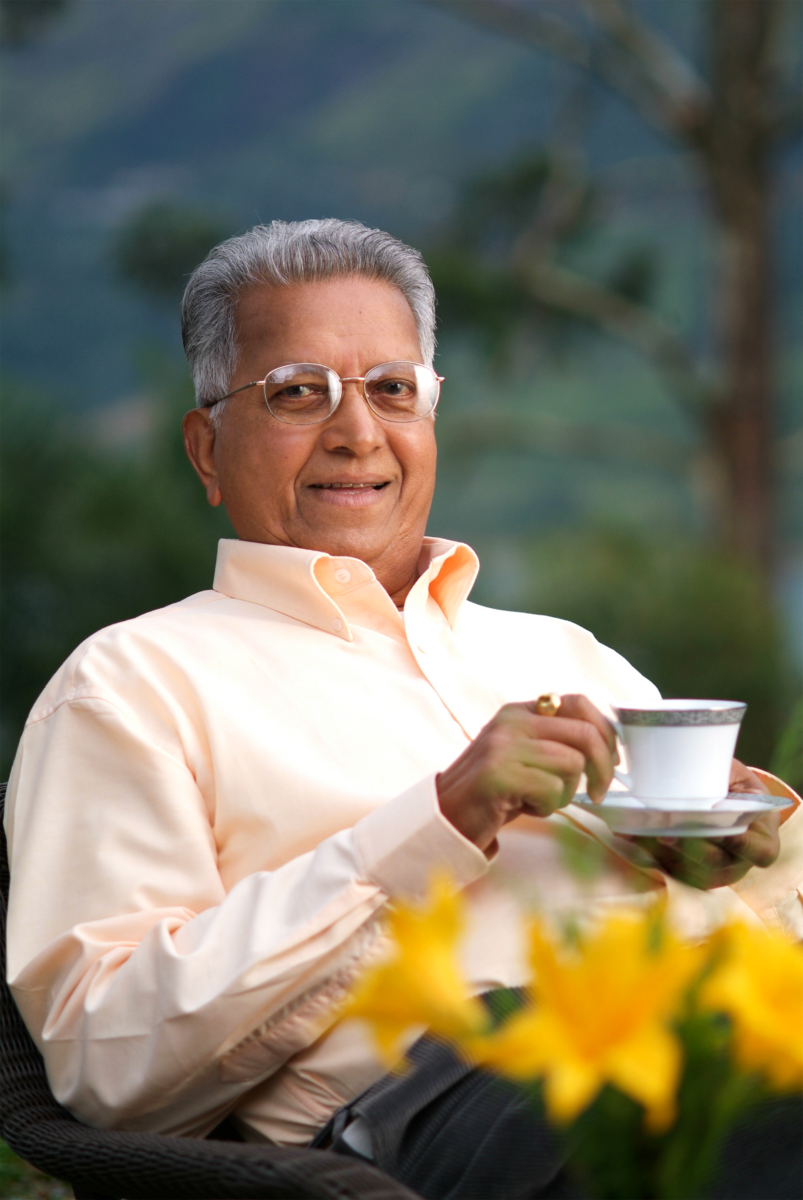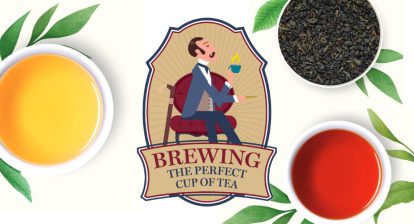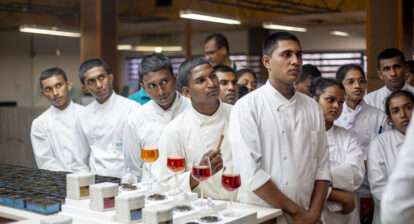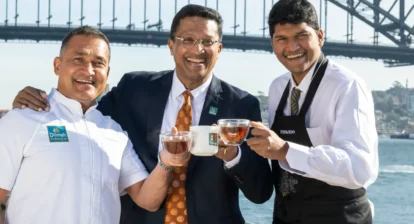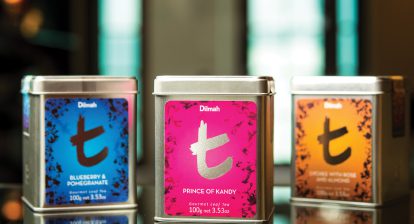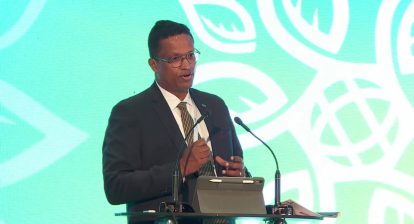Merrill J. Fernando was a man who held his ground when it came to marketing his beloved Dilmah. Fondly referred to as MJF, his confidence was built on a foundation of instinct and experience that no theoretical marketing strategies could parallel. He was a steadfast believer in the goodness of pure Ceylon tea, in his ability as a teamaker, and in his God. There was nothing that could make him waver in his allegiance to any of these.
This narration makes more sense if we go back to where it all started – his ordinary childhood in the humble fishing village of Pallansena in Negombo, Sri Lanka. MJF was a gentleman who, despite all the international accolades accrued in his lifetime, always appreciated and reminisced the simplicity of his early village life. Chapter 23 of his memoir, The Story of Ceylon Teamaker Merrill J. Fernando, opens with a reference to the personal connection that the owner of a neighbourhood grocery shop often made with their customers, back in the day. They owned the shop, ran the shop, knew the consumer, and knew every product they sold. They could offer insight or advice, if required, on any product, and thereby had a sense of accountability for what they sold.
MJF’s marketing strategy was based on the same simple, straightforward, interactive approach. It was personal marketing. At a time when authentic, artisanal, consumer-centric products were gradually being replaced by commercially-driven mass production, MJF stayed true to his promise of making the world a better tea – garden-fresh, unblended, single origin, pure Ceylon tea.
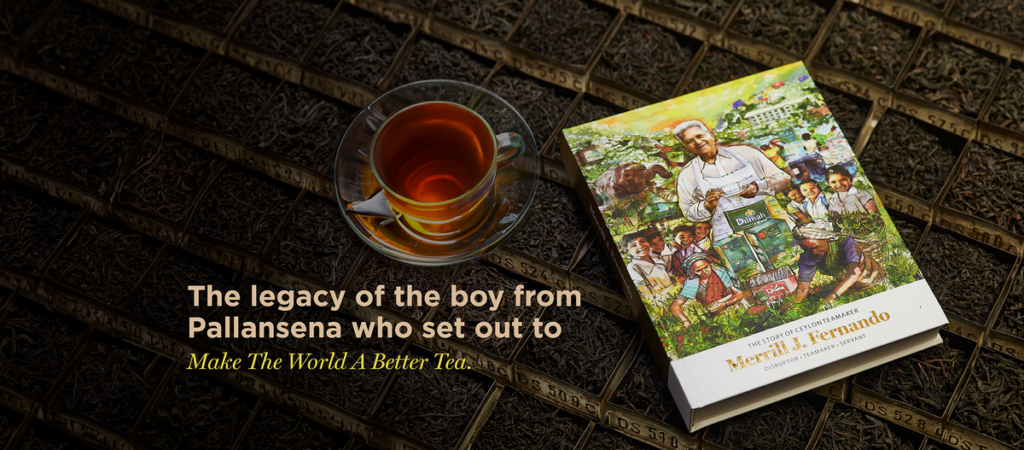
As the founder and owner of his Dilmah brand, he personally visited the countries to which Dilmah tea was exported, guaranteeing the producer’s accountability to both buyer and consumer. The unprecedented move gave him an unparalleled advantage over other brands that relied on middle-men to promote their products, for MJF knew his product inside-out. He could answer any question about it. He talked with and listened to his consumer, first-hand. He wasn’t simply selling Dilmah tea – he created it, nurtured it, loved it, and lived it.
Unlike other faceless, emotionless multinational competitors, MJF’s personal involvement in introducing and promoting his Dilmah to foreign markets made it a peerless product that came with this real man, in flesh and blood, whom consumers could see, hear, and relate to. Above all, family values stood at the core of this marketing platform. It is no surprise, therefore, that so many of the people he met on a business level in the early years of Dilmah, evolved into lifelong friends.
With a little coaxing from his friend and agent Daron Curtiss in New Zealand, MJF agreed to be the face and voice of his own brand – on television, radio, and in magazines. He was soon recognised in New Zealand – and subsequently around the world – as ‘Mr. Dilmah’, and his iconic words, “Do Try It” have echoed across the globe and through generations of tea drinkers.
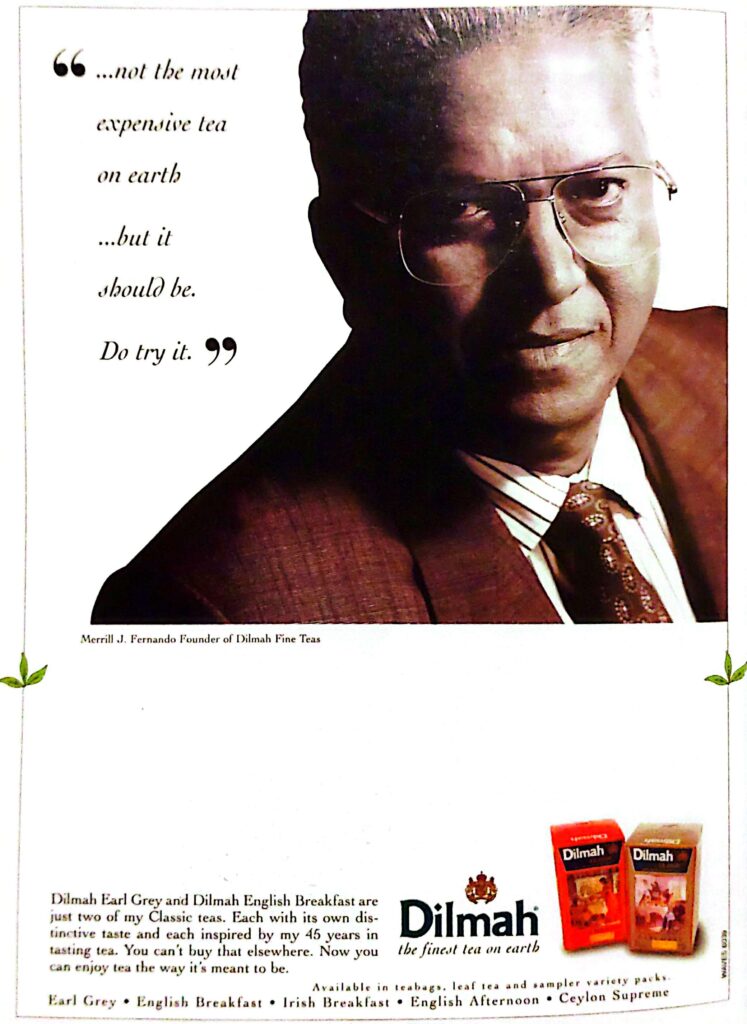
The trials and tribulations that MJF faced in his quest to make the world a better tea are numerous. It took him nearly four decades to fulfil his aspiration of creating his beloved Dilmah, having to work his way through both colonial and local bureaucracy. The international market proved to be equally prickly, with some competitors and retailers resorting to vile manipulation. Yet, MJF persevered and persisted, refusing to disrespect the Ceylon tea that he revered, or degrade the Dilmah brand that he had dedicated his life to. Akin to his faith in God was his belief that his ethos would one day be rewarded. As he says in his memoir, “If the product is genuine, the consumer will ensure the success of the brand.” Words to live by, indeed.

